18, April 2023
National Episcopal Conference of Cameroon: Archbishop Nkea speaks about life and faith in the Church 0
48th Plenary Assembly: 16-22 April 2023
Archbishops and Bishops of Cameroon,
The Secretary General NECC,
Reverend Fathers and Lay collaborators at NECC,
Dear Journalists, men and women of the Media,
Ladies and Gentlemen,
1. “The Lord is Risen, Alleluia – Yes, He is truly Risen Alleluia1”. It is with this Easter refrain that I would like to welcome all the Archbishops and Bishops of Cameroon and their collaborators who have gathered here in the National Episcopal Center, for the 48th Plenary Session of the National Episcopal Conference of Cameroon. I would equally like to welcome each one of you here present, as well as greet all Civil, Military, Traditional, Political and Religious authorities wherever they are at the moment – a very Happy Easter to you all. The first words of the Risen Lord to his Apostles were: “Peace be with you”. This greeting is very relevant for all of us in present-day Cameroon. So, as we begin this Plenary Assembly of the Bishops, I would like to greet the whole of Cameroon with the same words of the Risen Christ: “Peace be with you”.
2. After forty days of fasting and abstinence, we celebrated in our various dioceses one of the most important events in our religious and spiritual life: the Solemnity of Easter, a symbol of how suffering leads to rebirth. The Resurrection of Christ is of particular interest to us because at Easter, the movement from death to life, engages each of us in a very personal manner. We who are gathered here on this day after the Divine Mercy Sunday, know for certain that our destiny and our life, would have had no meaning without the Resurrection of Christ. This is both crucial and central to our history and our journey towards God.
3.Like the Apostles on the day after Easter, we have to proclaim Christ victorious over death, to our society marked by various sufferings – socio-political crises, agricultural difficulties, the lack of farm to market roads, repeated killings, the Covid-19 pandemic, high cost of living and other social injustices, to name just a few. In this kind of atmosphere, we must continue to bear witness to our faith in a world that seems to have lost its bearings and which now gives way to all kinds of abuses.
Albeit, our ongoing efforts for the return of peace in our country have not been in vain, because, despite the continuous threats from Boko Haram in the North and the prevailing insecurity in the North West and South West Regions, we do not give up, instead we ask Christ the Risen One to shower us with His peace. Thanks be to God, relative calm is returning to the North West and South West Regions, some businesses are reopening and many children are going back to school. This is a great sign of hope, but the situation of insecurity still remains very preoccupying.
4. In the recent months, we have been very saddened by the various extra-judicial killings that have been taking place in our society, top among which was the murder of the Journalist, Martinez Zogo, in Yaoundé. The bishops of Cameroon together with the Universal Catholic Church have always called on all peoples to respect human life, which is a gift from God from the moment of conception to its natural death. To kill someone is a sin against the 5th Commandment of the Decalogue and this commandment clearly states: “Thou shall not kill”. It is our prayer and hope that the real killers of fellow citizens will be clearly identified and brought to book according to the laws of our country. We make a very strong appeal here to all Cameroonians, to stop killing one another. We are all brothers and sisters of the same Fatherland, and children of the same God who is Father to us all.
5. During this 48th Plenary Assembly, we will, as we are accustomed to, give priority to listening to reports from the 14 commissions which represent the daily life of our Conference. This will give us the opportunity to find solutions to some important points which directly affect the future of our Conference as well as concretely revisit issues which were discussed during the seminars in Obala, Bafang, Ngaoundéré and Ebolowa.
6. We have to rewrite together, as it were, the pages which give answers to the questions we have been asking ourselves in recent years: “What kind of Episcopal Conference do we want? We are all called to work together to build this house more solidly. And to achieve this, each of us must move from “I” to “we”; from just thinking about “my diocese” to thinking about “our conference.” We are doing everything possible to improve both the living conditions of the priests who are resident here, as well as the working conditions of the commissions. We are happy to note that the CoSMO Project which was presented to us in Ebolowa, has already taken off as an outreach of our Conference. Its implementation in some target dioceses will gradually enable us to reach all the others for the good of vulnerable children in our country.
Last year, we asked the Episcopal Commission for Communication to take over from the Archdiocese of Douala, both the production and distribution of our national newspaper “L’Effort Camerounais.” All of us are certainly glad to see the current 16-page Newspaper in colour and in its 5th publication already. While we render sincere thanks to the Archdiocese of Douala which kept the flame of this historic Newspaper burning, we encourage our Communication Commission to keep up the good work they have begun and to ensure that the paper regains its original impact and even more.
7. After one year of our mandate in office as President of the National Episcopal Conference, we are still very committed to the construction and transformation of Marienberg in the Diocese of Edea, into a National Pilgrimage Centre. Our people need to pray; our country needs prayers and we have to look up to the Blessed Virgin Mary who is the Comforter of the Afflicted, Mirror of Justice, Help of Christians and Queen of Peace, to intercede for us.
8.May the same Blessed Virgin Mary, Queen of Apostles and Special Patroness of Cameroon, intercede for us so that we can achieve our common objectives and worthily announce the Good News of the Risen Lord to all creation. It is with this urgent invocation then that I now declare open, the 48th Plenary Assembly of the Bishops of Cameroon.
Done in Mvolye, Yaoundé, this Tuesday 18 April 2023
+Andrew NKEA,
Archbishop of Bamenda,
President of the National Episcopal Conference of Cameroon


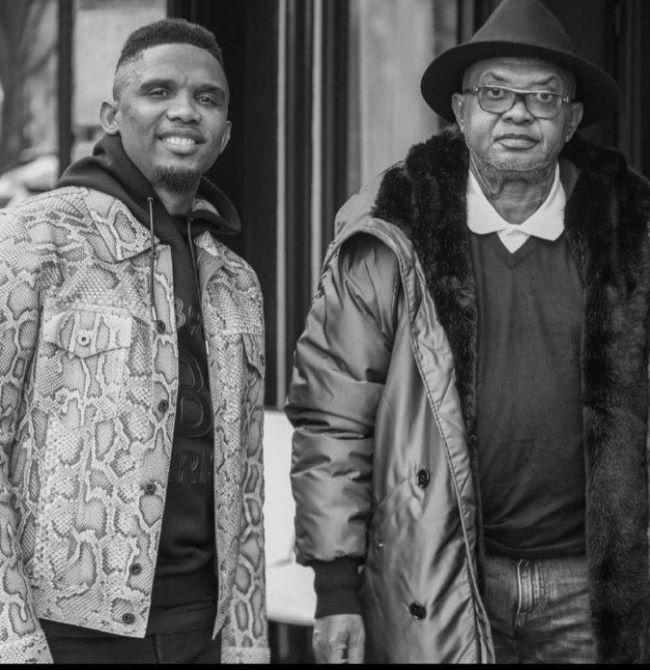
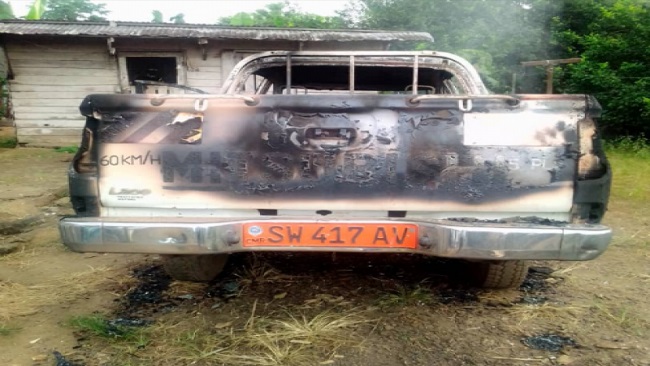

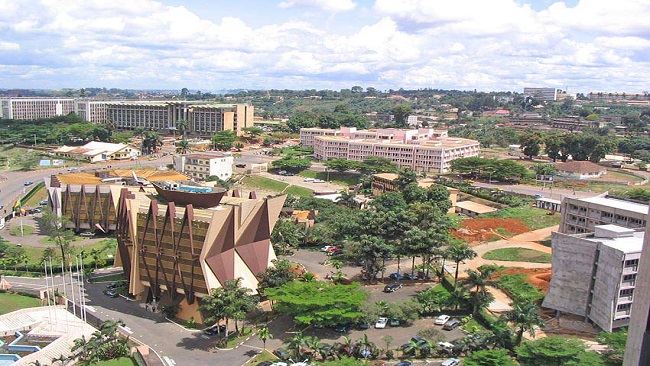

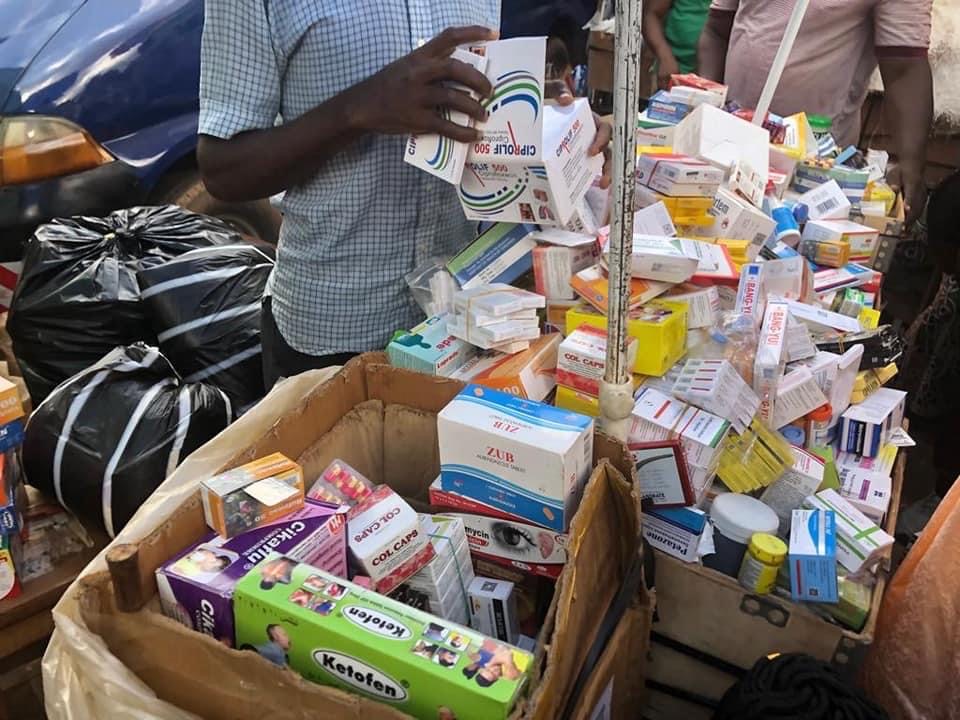
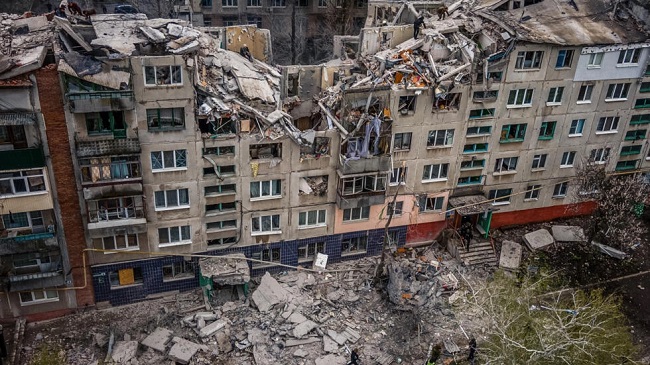












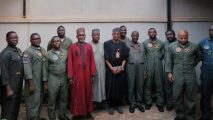




19, April 2023
Thousands flee Sudan capital following collapse of truce 0
Thousands of residents fled Sudan’s capital Wednesday as fighting between the army and paramilitaries raged for a fifth day after a 24-hour truce collapsed. Roughly 200 people have already been killed.
The violence erupted on Saturday between the forces of two generals who seized power in a 2021 coup: army chief Abdel Fattah al-Burhan and his deputy, Mohamed Hamdan Dagalo, better known as “Hemedti”, who commands the paramilitary Rapid Support Forces (RSF).
It followed a bitter dispute between Burhan and Dagalo over the planned integration of the RSF into the regular army – a key condition for a final deal aimed at resuming Sudan’s democratic transition.
“There is no ceasefire at all,” FRANCE 24’s regional correspondent Bastien Renouil reported from Nairobi, citing sources on the ground.
“The fighting in Khartoum continues and [the sources] say they could hear gunshots all night long, and that now planes are flying over the city bombing locations that they [the army] believe belong to the RSF. The RSF is fighting these planes, shooting anti-aircraft artillery.”
Civilians huddled in their homes were becoming increasingly desperate, with dwindling food supplies, power outages, and a lack of running water.
Their hopes of being evacuated were dashed on Tuesday when a 24-hour humanitarian ceasefire collapsed within minutes of its proposed start at 1600 GMT.
Streets littered with bodies
On Wednesday morning, thousands of people took matters into their own hands and began leaving their homes in Khartoum, some in cars and others on foot, including women and children.
They said the streets were littered with dead bodies, the stench of which filled the air.
Governments have starting planning to evacuate thousands of foreigners, among them many UN staff.
Japan said on Wednesday that its defence ministry had begun the “necessary preparations” to evacuate around 60 of its nationals from Sudan, including embassy staff.
After the truce collapsed, the army accused the “rebel militia” of failing to commit to it and of continuing “skirmishes around the army headquarters and the airport”.
The RSF in turn accused the army of “committing violations” and breaching the ceasefire by launching “sporadic attacks” on its forces and bases around the capital.
FRANCE 24’s Renouil said that the ongoing “communication war” between the army and the RSF has made it extremely difficult to know exactly what is going on.
“If the RSF publishes a statement saying that they are in control of this or that building and institution, the army publishes another statement saying that ‘no, that’s not the case’ and that they’re [the ones in control]. So it’s impossible to know exactly what is happening on the ground.”
Hospitals being shelled
The fighting has left at least 185 people dead and more than 1,800 injured, according to the United Nations.
But the real figure is thought to be far higher with many wounded unable to reach hospitals, which are themselves being shelled, according to the official doctors’ union.
Deafening explosions rattled buildings, windows and the nerves of many terrified residents who hunkered down hoping for an end to the violence.
Offices and residential buildings in the city have been left with shattered windows and facades riddled with bullets.
Electricity and water are out in many parts of Khartoum, forcing residents to sneak out during lulls in fighting to buy food and supplies, witnesses said.
Derailed transition
The latest violence, during the Muslim fasting month of Ramadan, came after more than 120 civilians had already been killed in a crackdown on regular pro-democracy demonstrations over the past 18 months.
Both generals have positioned themselves as saviours of Sudan and guardians of democracy—in a country which has known only brief democratic interludes.
Saturday’s outbreak of violence is the culmination of deep-seated divisions between the army and the RSF, which was created in 2013 by longtime autocrat Omar al-Bashir.
Burhan and Dagalo toppled Bashir together in April 2019 following mass protests against his three decades of iron-fisted rule.
They have since been allies with their relationship interspersed with brief periods of tensions.
In October 2021, the two men led a military coup against the civilian government which was installed following Bashir’s ouster, derailing an internationally backed transition.
Burhan, a career soldier from northern Sudan who rose through the ranks under Bashir, has maintained his coup was “necessary” to include more factions into politics.
But Dagalo has since called the coup a “mistake” that failed to bring about change and invigorated Bashir’s remnants.
Source: AFP